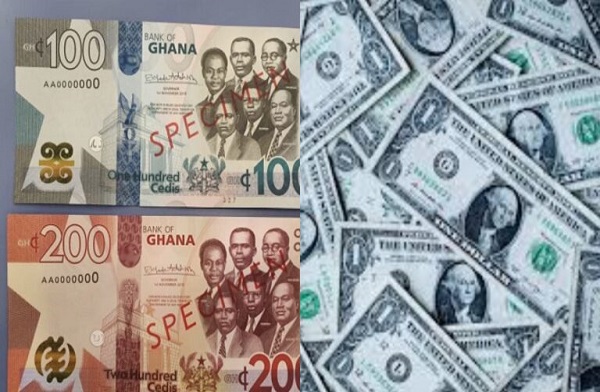The Institute for Economic Affairs (IEA) has urged the Bank of Ghana to progressively build its reserves to at least six months of import cover to strengthen the exchange rate.
According to the think tank, that’s the major step in avoiding the perennial depreciation of the cedi.
It pointed out that the additional reserves could be derived from natural resources through increased ownership and value addition.
In an analysis ahead of the December elections, the IEA said the exchange rate management should be improved by implementing measures to address the perennial foreign exchange supply-demand imbalance through some of the structural reforms.
This includes better management of the exchange rate through prudent fiscal and monetary policies.
Infrastructure remains inadequate, poor
On infrastructure, it said Ghana’s infrastructure remains inadequate and poor, belying its status as a middle-income country.
Urban roads, highways and rural roads are all poor, while railways for transportation of people and goods are virtually nonexistent. Port facilities are also inadequate and below international standards.
The IEA expressed concern that the government budgets consistently make inadequate allocations to infrastructure, with disproportionate shares going to non-productive recurrent expenditure.
Again, inadequate and poor infrastructure has increased the cost of doing business and economic inefficiencies and has been a drag on economic growth.
On recommendation, it stated that the budgetary allocations for infrastructure should be substantially increased, while at the same time reducing recurrent expenditure.
At the same time, the private sector should be involved in infrastructure financing through Public-Private Partnerships (PPP) initiatives to reduce the burden on the budget, whilst tThe Ghana Infrastructure Investment Fund (GIIF) should be regularly funded to ensure dedicated funding for infrastructure.
Also, an additional Fiscal Rule should be introduced in the Fiscal Responsibility Act to channel all government loans to capital investment to ensure that enough returns are generated to facilitate future repayments.
Latest Stories
-
Parliament passes Ghana Gold Board Bill 2025
13 minutes -
Parliament passes 2025 Amendment to Public Procurement Act
15 minutes -
2025 Appropriation Bill passed
16 minutes -
Expelled South African envoy accuses Trump administration of racism
51 minutes -
Local Government Minister proposes sanitation levy to address Ghana’s waste management crisis
8 hours -
Central University Vice Chancellor calls for Fee Voucher System to support private universities
9 hours -
Heritage Month Cooking Competition showcases Ghana’s culinary richness
9 hours -
T-bills undersubscribed for 2nd consecutive time by GH¢1.5bn
11 hours -
His finest hour yet: The Bawumia concession and lessons in leadership
11 hours -
EC reschedules nomination for Nkoranza North and South District Level Elections
11 hours -
Energy Minister must recover stolen ECG containers or be held accountable – Ntim Fordjour
12 hours -
CLOGSAG suspends strike over Births and Deaths Registry appointment
12 hours -
Ing. Ludwig Annang Hesse is new president of GhIE
12 hours -
One artiste can’t take Ghana to the top, we must collaborate – Edem
12 hours -
Presidency hasn’t ordered NIB to investigate Akufo-Addo’s travels – Felix Kwakye Ofosu
12 hours

